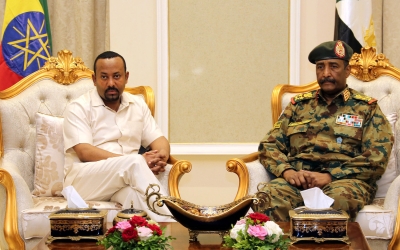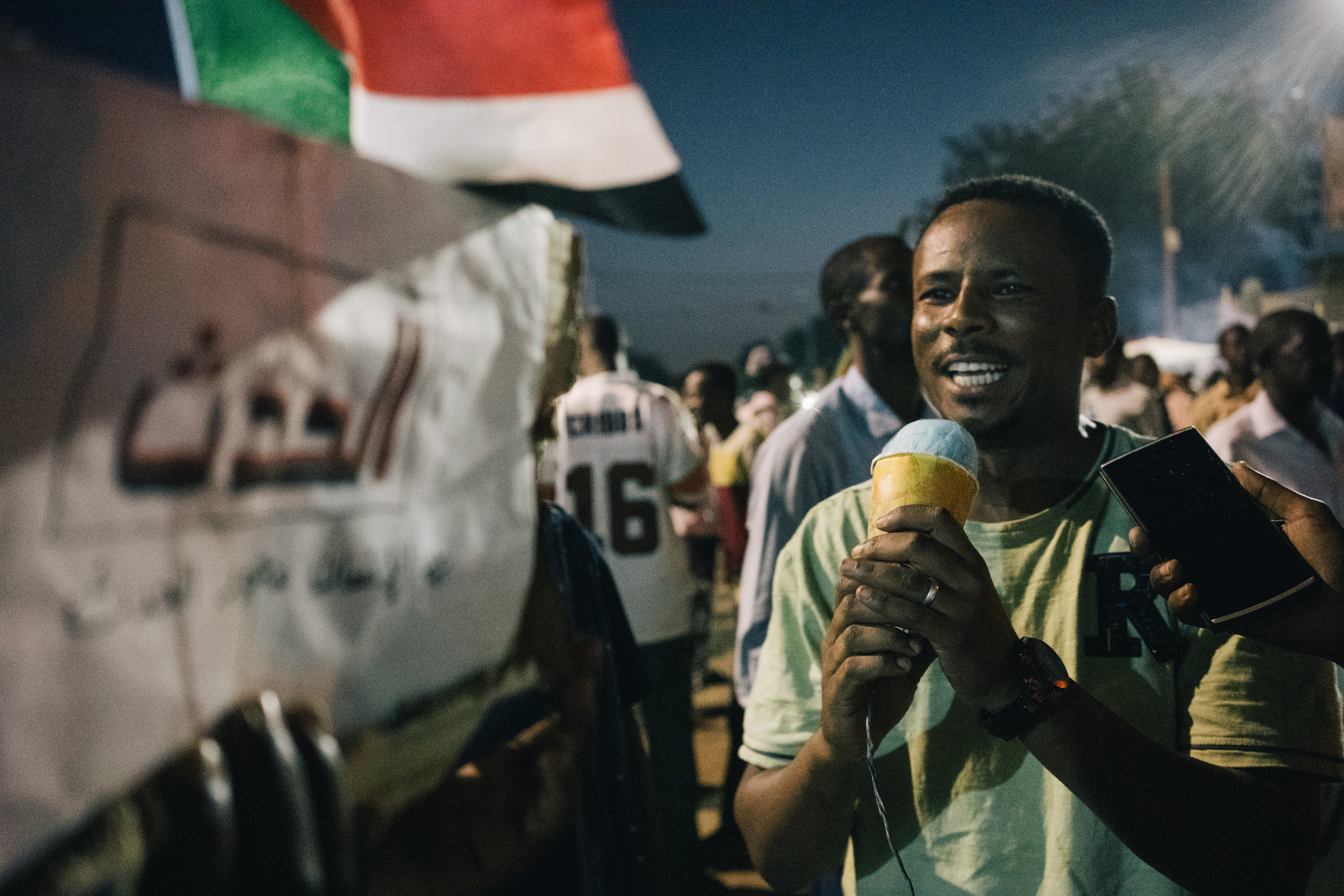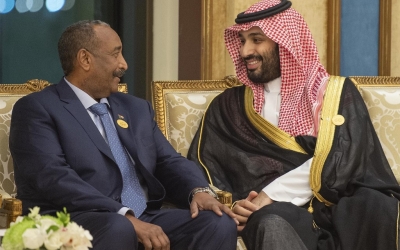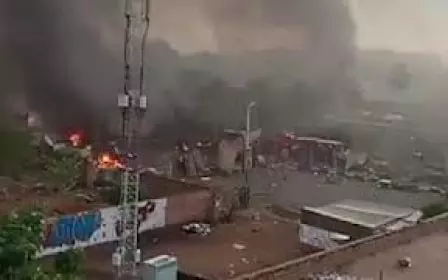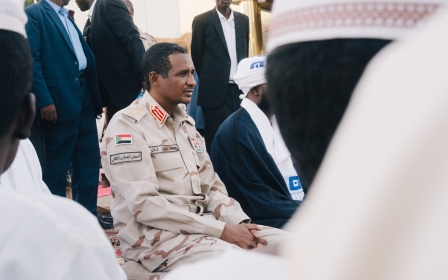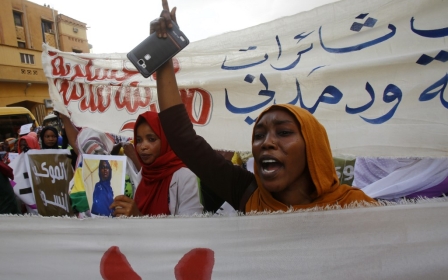Live: Latest on Sudan crackdown
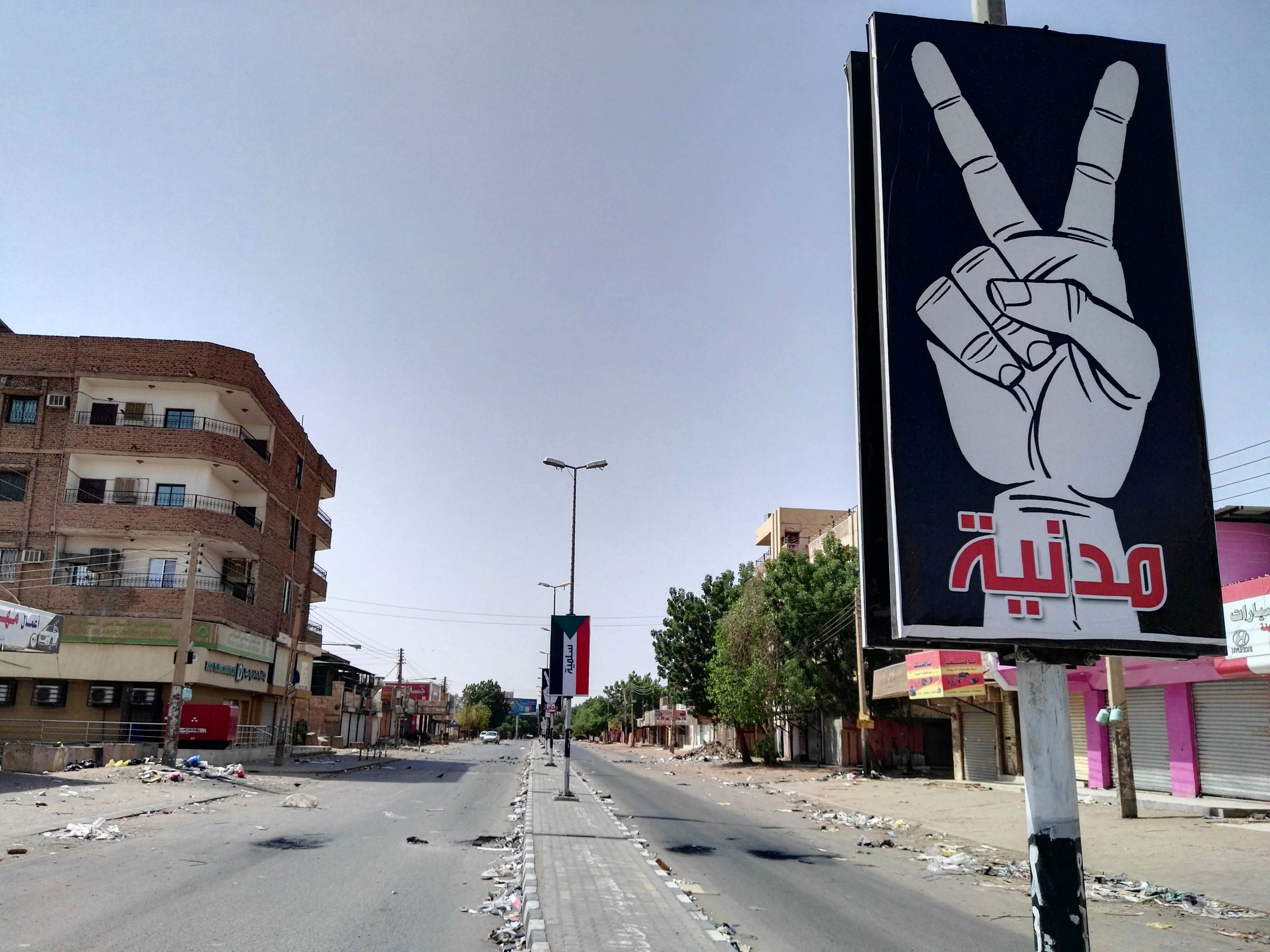
Live Updates
The United Nations has proposed the deployment of a human rights monitoring team to Sudan, to investigate the deadly crackdown in Khartoum earlier this week.
The Office of the UN High Commissioner for Human Rights (OHCHR) said it was seeking cooperation from the Sudanese government in order to deploy the team.
It said the rights monitors would work with government authorities, as well as civil society and other organisations on the ground in Sudan.
"Once again, we call on the authorities to ensure a prompt, independent investigation into the use of excessive force against protest camps," OHCHR said in a statement.
"Accountability is crucial to avoid further bloodshed. We stress the need for a swift transition to a civilian administration."
Sudan's protest leaders met on Friday with Ethiopia's Prime Minister Abiy Ahmed, who is seeking to mediate between opposition and military officials.
The Alliance for Freedom and Change opposition group said it would agree to Abiy-led talks, but only if Sudan's ruling military council meets certain demands, AFP news agency reported.
"The Transitional Military Council has to admit to the crime it committed," Omar al-Digeir, a prominent protest leader, told reporters.
Al-Digeir also called for an international probe into a recent deadly crackdown on a Khartoum sit-in, and for the military to "be removed from the streets" across Sudan.
Digeir said the military council must also restore internet access.
After increasing reports of Khartoum residents being provoked in their neighbourhoods and homes by both paramilitary fighters and men out of uniform, the opposition Sudanese Professionals Association warned people to beware of the military's "miserable tricks".
It claimed groups are trying to trick people, using announcements from local mosques, into removing barricades and to come out onto the streets.
The SPA said the protesters should follow a strategy of building barricades on roads then abandoning them instead of confronting the paramilitary forces.
A muezzin (who usually calls to prayer) says a message broadcast for people to carry arms was not made by anyone from the mosque
Pan-Arab media outlets have come under fire from Sudanese journalists and activists, who accuse them of spreading pro-military propaganda.
Saudi Arabia's al-Arabiyya and al-Hadth channels have been the focus for much of the ire, especially after reporting claims that protesters were to blame for the violence at the sit-in.
The Sudanese Journalists Network issued a statement critcising the stance taken by the channels.
"The journalists network doesn't ask for anything more from these channels than journalistic and professional honor."
Ethiopia's Prime Minister Abiy Ahmed has met with the head of Sudan's military council, Abdel Fattah al-Burhan, after arriving for mediation talks on Friday.
Acccording a diplomatic source cited by Reuters, Ahmed will also be meeting the opposition.
After Monday's attack on the Khartoum sit-in, which the opposition says killed at least 113 people, the opposition cut off all contact with the military, who they had been in negotiations with for an initial partial handover of power to civilians.
Burhan initially said all prior agreements with the protesters were cancelled but then reversed the decision, saying they were open to restarting the negotiations which had already been stalled.
The United Nations and the British embassy have announced they are pulling non-essential staff and their families from Sudan.
The United States has warned its citizens to exercise "extreme caution" amid the ongoing uncertainty.
Sudan's opposition has reiterated its refusal to negotiate with the country's ruling military council following the deadly attacks on protesters.
"The blood has not dried yet; and based on that, we reaffirm that there will be no return to negotiations with the coup council. Our demands remain clear," the Sudanese Professionals Association (SPA) said on Twitter.
Some of those demands include:
-
Transferring Sudan's government to civilian rule.
-
Dissolving the Janjaweed militia, which is related to the Rapid Support Forces (RSF), members of which have been accused of carrying out the crackdown on the Khartoum sit-in.
Ethiopia's Prime Minister Abiy Ahmed will head to Sudan on Friday in the hopes of hosting a meeting between Sudan's military council and opposition leaders, an unidentified diplomatic source told Reuters.
Abiy's choice to act as mediator follows the African Union's (AU) decision to suspend Sudan from all AU activities until the country forms a civilian government.
It is unclear whether the meeting will take place, however, as the Sudanese opposition has rejected calls to go back to negotiations after the deadly assault on protesters in Khartoum this week.
Paris has condemned "in the strongest terms" the recent violence in Sudan, saying the perpetrators of this week's deadly crackdown on protesters "must answer to the courts", a spokesperson for the French ministry of foreign affairs said in a statement.
The statement, which mentioned the "many victims" of the repression of the protest movement, also called for the establishment of a "civil government".
Contradictory statements from leaders of Sudan’s Transitional Military Council (TMC) following the brutal crackdown on protesters suggest there may be a crack in the ranks of its leadership.
On Wednesday, a day after he said all doors for negotiation were shut and all previous agreements were cancelled, the head of the TMC Lieutenant General Abdel Fattah al-Burhan extended a hand for unconditioned talks with the opposition.
But his deputy Mohamed Hamadan Dagalo – also known as Hemeti – maintained a tone of hostility, saying “chaos” will not be accepted anymore.
Citing a credible source in Khartoum, Rashid Abdi, an analyst at International Crisis Group, said on Thursday that the TMC is “deeply split”.
The African Union's Peace and Security Council voted on Thursday to suspend Sudan from all AU activities until a civilian government has been formed.
The council made the announcement after a meeting in Addis Ababa of the member states of the pan-continental body.
The decision follows an upsurge in violence in Sudan this week as its ruling military council and opposition groups vie to take charge of the transition to democracy.
Amnesty International has called for international action against Sudan's new military rulers and condemned the government's Rapid Support Forces (RSF) for what it called a "murderous rampage" against protesters this week.
In its statement, Amnesty International singled out the RSF, a paramilitary force that controls Khartoum, as being a main participant in the violence.
The force, led by the deputy leader of the Transitional Military Council, General Mohamed Hamdan Dagalo, commonly known as Hemeti, was built up from militias that fought insurgents in Sudan's western Darfur region during a civil war that began in 2003.
"The RSF, the special military force which killed, raped and tortured thousands in Darfur, brings its murderous rampage to the capital," Amnesty said.
"Reports that bodies have been dumped in the river demonstrate the utter depravity of these so-called security forces."
Witnesses have said the RSF led the crackdown on the protest camp. Troops fired on unarmed protesters then mounted a wider crackdown in the following days, they say.
The military council has denied the force was involved in any illegal actions and said it was facing a negative media campaign "from hostile parties".
The raid was targeting criminals in an area adjacent to the camp, it said.
The head of Sudan’s ruling military council was given a “green light” by Saudi Arabia and its regional allies to crack down on protesters camped for weeks outside the military’s headquarters, a Sudanese military expert has told Middle East Eye.
Speaking on condition of anonymity because of security concerns, the well-informed expert said he understood that plans to destroy the protest camp in Khartoum had been discussed during recent visits to Saudi Arabia, the United Arab Emirates and Egypt by Lieutenant General Abdel Fattah al-Burhan, the head of the Transitional Military Council.
“The breaking up of the sit-in was one of the main points on the agenda that was discussed,” the expert said.
“Unless he got the green light from his regional allies he would not have been able to commit such a crime.”
Russia said on Thursday it opposed foreign intervention in Sudan and that authorities in Khartoum must subdue what it described as extremists, Russia's RIA news agency reported.
The Russian foreign ministry also said it supported the holding of elections.
The mood in the capital, Khartoum, remained tense on Wednesday evening, with demonstrators blocking streets in several districts. Gunfire rang out in the distance.
Most shops were shuttered on what would usually have been a bustling Muslim Eid al-Fitr holiday, Reuters reported.
Minor protests erupted outside mosques after Eid prayers, but there were no reports of significant clashes with security forces.


